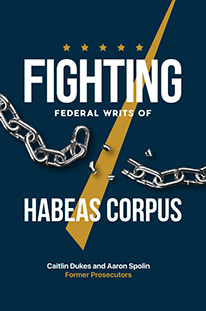Spolin & Dukes Client Freed; Walks Dog For First Time in 18 Years.
Published on July 12, 2024(Photo caption: Cell phone photo of Spolin & Dukes client A.V. jubilantly walking a dog for the first time in 18 years.)
Spolin & Dukes attorneys are ecstatic to announce the successful release of a client who was wrongfully convicted of murder 18 years ago. The client had been in custody since 2006, and the Spolin & Dukes attorneys, particularly Caitlin Dukes and Erica Esquivel, have been representing him in various post-conviction courts for the last four years.
On June 11th he was finally released, and he sent a short video to his Spolin & Dukes attorneys showing him walking his dog near the Santa Monica boardwalk.
The firm is preparing a more detailed account of the client’s saga and legal battles, which will be published on the firm’s website soon. In the meantime, you can read this media article about the client’s case that was published shortly before he won his case and was released. The well-researched and well-written article, by Mercedes Kane, can also be viewed at the Capital & Main website here.
Interview with Caitlin Dukes and Aaron Spolin, authors of Fighting Federal Writs of Habeas Corpus
Published on May 28, 2024Authors Aaron Spolin and Caitlin Dukes Discuss Book on Federal Writs of Habeas Corpus – 5/28/24
Listen to this interview of appellate lawyers Caitlin Dukes and Aaron Spolin, authors of the recently published book Fighting Federal Writs of Habeas Corpus. The transcript will be posted shortly.
Spolin & Dukes Overturns Guilty Plea on Major Case, Saving Client from Deportation
Published on April 16, 2024Spolin & Dukes P.C., a prominent law firm, is pleased to announce a major victory at the Pasadena Courthouse last Friday. Attorneys Aaron Spolin, Caitlin Dukes, and Erica Esquivel successfully litigated a Penal Code 1473.7 motion, overturning a guilty plea that had jeopardized the immigration status of a longstanding resident.
Attorney Erica Esquivel skillfully detailed the client’s journey of redemption, highlighting his transformation from a prison inmate to a successful businessman, husband, caretaker to his 76-year-old mother, and loving father of two children. Her compelling narrative was pivotal in the court’s decision to overturn the conviction.
The client, who faced imminent deportation due to a conviction he poorly understood, has lived in the United States since he was two years old and has established his family here. The case was particularly challenging because the client had attempted a 1473.7 motion four years earlier, only to have it denied in the Superior Court and in the Court of Appeal. That original motion was in front of the same judge who ultimately ruled for the Spolin & Dukes client, Honorable Suzette Clover, who was appointed to the bench in 2006.
The turning point in the second 1473.7 motion was the introduction of new evidence, including a critical declaration from the client’s former lawyer admitting his mistake in not explaining to the client the potential immigration consequences of his plea. Judge Clover’s decision has not only corrected a grave legal error but has also safeguarded the client’s ability to remain with his family in the U.S.
“We are deeply gratified by the court’s decision, which not only represents justice for our client but also emphasizes the importance of understanding the immigration consequences of criminal proceedings,” said Aaron Spolin.
The victory has significant implications for similar cases, highlighting the need for accused individuals to understand both the direct and the indirect consequences of a guilty plea.
For more information, please contact: Spolin & Dukes P.C. (866) 716-2805.
Despite Conservative Concurrence, Spolin & Dukes Attorneys Win Major Case in Court of Appeal
Published on February 14, 2024Attorney Caitlin Dukes has achieved a significant victory in the court of appeal on a case where a client, previously convicted of murder, was granted an evidentiary hearing to consider removing the murder conviction from his record. This major decision occurred on January 17, 2024.
Ms. Dukes, collaborating with two other attorneys from the firm Spolin & Dukes P.C., played a pivotal role in the legal work necessary for this win. The judges who signed off on this decision are Presiding Justice Arthur Gilbert, Associate Justice Kenneth Yegan, and Associate Justice Tari Cody. The central issue was whether the trial court had acted improperly by denying the client the right to an evidentiary hearing about the removal of his murder conviction.
The appeal court found that the lower court had relied on inadmissible material and its denial was insufficient. The Spolin & Dukes attorneys argued that the lower court’s decision was erroneous and that the client deserved a comprehensive evidentiary hearing, including the ability to call witnesses and present documentary evidence, for a fair argument on whether the client warrants resentencing with the murder conviction removed.
The case is now back in the lower court, where the judge is mandated to conduct the required evidentiary hearing, as sought by the firm. This case is especially noteworthy because the client had dismissed his former lawyer to hire the Spolin & Dukes attorneys. The former lawyer had vowed to scrutinize the firm’s work for any errors. Not only was the case handled with aplomb, but the firm’s work led to a victory. Generally speaking, winning criminal appeals is a rare and difficult achievement.
Associate Justice Kenneth Yegan issued a concurring opinion where he harshly criticized the other justices for their liberal approach to the case. Justice Yegan had been appointed to the judiciary by a Republican governor, and his concurrence expressed annoyance that the Spolin & Dukes client has already “whittled down” his sentence from 50-years-to-life to now 15-years-to-life, with the possibility of even more reductions in the Superior Court based on the current win. Nonetheless, even this conservative judge was forced to agree with the Spolin & Dukes attorneys in granting the appeal, writing: “But, I must concur for the reasons stated in People v. Arreguin.” The client and his family were delighted with the outcome, as were the attorneys at the firm.
Ms. Dukes acknowledges the hard work of not just her own but also the other attorneys, paralegals, assistants, and staff who dedicated many hours to provide the highest level of advocacy for this client. Their collective efforts paid off in this case, and she expresses her happiness and gratitude for the successful outcome.
Spolin & Dukes Attorney Argues Major Case in Federal Circuit Court
Published on January 30, 2024On January 9, 2024, Aaron Spolin of Spolin & Dukes P.C. argued a complex and significant case in front of the Ninth Circuit Court of Appeals at the Richard H. Chambers U.S. Courthouse in Pasadena, California (USA v. Javier Durazo-Miranda; 22-50305). This oral argument proceeding was conducted after several months of work on written court submissions, including an Opening Brief, as well as a Reply Brief where Spolin & Dukes attorneys refuted the government’s arguments.
As can be seen in the recording of the court proceeding, Mr. Spolin used strong legal arguments and convincing case evidence, while also highlighting the client’s character and humanity, an approach frequently used by Mr. Spolin and the other attorneys at the firm. The Spolin & Dukes team believes that this multifaceted, yet understated, method encourages the court to not only evaluate the merits of the legal arguments presented, but to also see the client as a human being whose case is worthy of earnest consideration.
“I’ve heard time and again from my clients that the legal system makes them feel less than human, like they’re just a name or number on a piece of paper,” Mr. Spolin recently remarked. “I want my clients to know that they’re important, that they matter. And I want the court to see that too. The fate of someone’s life is literally in their hands, and I don’t want them to take that lightly.”
The team at Spolin & Dukes works in courts across the country. The firm is led by Mr. Spolin, mentioned above, as well as Caitlin Dukes, a former prosecutor. To find out if the firm’s attorneys may be able to help with your case, or the case of a loved one, please call 866-716-2805.
Spolin & Dukes Partners Co-Author Book on Federal Writs of Habeas Corpus
Published on November 21, 2023Spolin & Dukes partners Caitlin Dukes and Aaron Spolin have co-authored and published a new book on federal writs of habeas corpus, a type of criminal appeal. Fighting Federal Writs of Habeas Corpus, now available for purchase, describes the strategies that attorneys can take to increase their chances of winning this type of appeal. The book is based on Ms. Dukes and Mr. Spolin’s experience handling federal writs throughout the country.
The following description appears on the back of the book:
After losing an appeal in state court, there is usually one last type of appeal available: the federal writ of habeas corpus. This type of appeal occurs in federal court and generally involves rights violations under the United States Constitution. In essence, the goal of a federal writ is to overturn a conviction or sentence and, ideally, win an inmate’s freedom.
In this book, two of the country’s leading habeas attorneys, Caitlin Dukes and Aaron Spolin, explain the ins and outs of fighting federal writs of habeas corpus. Based on their experience in state and federal courts, these former prosecutors explain the arguments, procedures, and strategies that are needed for a habeas writ to have a fighting chance.
Caitlin Dukes and Aaron Spolin are partners at Spolin & Dukes P.C., a law firm exclusively dedicated to criminal appeals and writs of habeas corpus. They currently handle appellate work for select clients throughout the country.
Book purchases can be made through Amazon.com.
The authors, as well as the other Spolin & Dukes appeals attorneys, can be reached at (866) 716-2805.
AB 600 Judge Initiated Resentencing
Published on October 19, 2023Decoding AB 600: A Deep Dive into Judge-Initiated Resentencing
With a recent surge in interest surrounding AB 600, many individuals – even fellow attorneys – have sought clarification on what this legislation entails. The below will shed light on the nuances of AB 600.
The Origins and Purpose of AB 600
Signed into law by Governor Gavin Newsom on October 8, 2023, AB 600 stands as a transformative piece of legislation. In essence, this law grants judges the authority to initiate resentencing if the original sentence no longer aligns with current legislation. This could pertain to areas such as enhancements, sentencing rules, strike laws, and other aspects related to sentencing.
Changes in laws are not uncommon. Laws that seemed justifiable five, ten, or even thirty years ago might now be considered outdated or unjust. As such, AB 600 acts as a remedy, allowing for sentences to be revisited and rectified in light of modern legislation.
The Nitty-Gritty of AB 600
A few core elements of AB 600 include:
- Initiating Resentencing: While previously a resentencing required initiation from the California Department of Corrections and Rehabilitation (CDCR) or agreement from the prosecutor, AB 600 places this power in the hands of judges. This resentencing can be initiated by the original judge, the current judge, or any judge with jurisdiction over the case.
- Considering Post-Conviction Factors: The court is now mandated to review post-conviction elements and assess if the defendant’s rights were potentially violated during the initial conviction or sentencing.
- Presumption Favoring Recall of Sentence: One of the pivotal aspects of AB 600 is its presumption in favor of resentencing. This comes into play unless the defendant poses an “unreasonable risk of danger to public safety.”
However, it is worth noting that despite this newfound judicial power, the law does not allow inmates or their attorneys to directly initiate the process. Judges must take the first step.
Should You Pursue an AB 600 Resentencing?
Though AB 600 provides an avenue for resentencing, it may not be commonly used by judges spontaneously. It is likely more beneficial in cases where judges have previously expressed a desire to issue a milder sentence but felt constrained by the laws of the time.
—
If you or someone you know is curious about the implications of AB 600 and how it might affect a past sentence, Spolin & Dukes P.C. is here to assist. Specializing in criminal appeals and writs of habeas corpus, our expertise lies precisely in this realm of post-conviction work. We can be reached at (866) 716-2805.
AB 1310 – CA’s Proposed Law to Resentence on Gun Enhancement Cases
Published on August 15, 2023AUTO-GENERATED TRANSCRIPT OF VIDEO:
This is Aaron Spolin. I’m a Criminal Appeals attorney. And I wanted to make a short video about AB 1310, which is a proposed law. That would do a lot for a lot of inmates in California prisons. I want to make a note, this analysis was created in August of 2023. So the law may have been changed since that time, and anyone is welcome to call our firm if you want to find out whether the law applies to your case, or would apply to your case. Right now it is in a draft form and is not an actual law yet. So first of all, what is AB 1310? It is a proposed new law to resentence inmates with gun enhancements. So essentially, if you’ve got a gun enhancement, this would very likely affect you. And what would happen to those gun enhancements? Well, everyone with gun enhancement would get a resentencing. That does not mean the gun enhancement would go away. But, if this law were to pass in its current form everyone would get a re sentencing hearing in superior court where a judge could remove the enhancement, and the judge could potentially modify the sentence in other ways. So when would this go into effect? Well, if it were passed in its current form, October 1 2024, is going to go into effect. So that’s in about a year or so. And one question is: would a resentencing be guaranteed? Yes, it would be under the current proposed law. But there’s a serious limitation. The outcome is not guaranteed. Under the current law at resentencing, a judge could choose to keep the gun enhancement and could choose not to remove other enhancements. So essentially, even though the resentencing would be guaranteed under the current text of the law, actually getting a lower sentence is not guaranteed. And that will be up to the judge. So how does the judge decide? Well, the law lays out a number of factors that a judge is supposed to look at in deciding whether to remove a gun enhancement. Many of those factors are mentioned in a law called AB 256 about race, whether race played a role in the conviction or the sentence. Another one is whether there are multiple enhancements on one case; multiple enhancements make it more likely that the judge should remove the gun enhancement. If there are enhancements that are 20 years or more, that makes it more likely that the judge should remove the enhancement. Mental illness is a factor that judges are supposed to look at. Childhood trauma is another factor listed in this law and its current form that judges are supposed to look at. Whether prior convictions are old, more than five years old from before the crime in question that got the gun enhancement. There are many, many other factors as well risk of violence, age, time served behavior. And there’s a catch-all factor judges are supposed to consider: whether it is in the interest of justice to remove a gun enhancement. So that is AB 1310. The attorneys at Spolin & Dukes have heard lots of questions about AB 1310 from our clients, from current clients and future clients, and we’re open to answering questions. And obviously a disclaimer is that prior success that we’ve gotten in other cases does not guarantee future success. Either way, looking forward to hearing from you.
Fox 40 Covers Caitlin Dukes’ Promotion to Partner and Her Record of Case Wins, 2023
Published on August 8, 2023In July 2023, Fox 40 featured a story about attorney Caitlin Dukes’ record of wins throughout the last few years, as well as her recent promotion to partner. Contained in the article is a partial list of Ms. Dukes’ wins, which include cases where murder convictions were overturned and clients were released from custody.
The text of the article is copied below, and it can also be viewed on Fox 40’s website here.
Appeals Attorney Caitlin Dukes is Now Partner at Spolin & Dukes P.C.; She Brings a Record of Winning Difficult Cases

LOS ANGELES, July 13, 2023 /PRNewswire/ — Appeals attorney and former prosecutor Caitlin Dukes has been promoted to the position of partner at Spolin & Dukes, P.C., formerly Spolin Law P.C.
She has a track record of winning difficult cases, including the twenty representative cases and rulings that are listed at the end of this press release. Her wins include overturning multiple murder convictions, winning contested court hearings, vacating lower court decisions, and—in one case—securing the immediate ordered release of an innocent client convicted of murder who had been fighting his case for 15 years.
Ms. Dukes, along with one other attorney, Jeremy Cutcher, won the firm’s Legal Service Award in 2022 for displaying exceptional care and consideration and for going above and beyond in their duties. Ms. Dukes was also selected by Super Lawyers® for the prestigious 2023 Rising Star award.
“A lawyer’s role goes beyond fighting the case,” noted attorney Aaron Spolin, another partner at the firm. “Caitlin has shown incredible compassion for our clients, demystifying the process and helping clients’ families understand her strategies and the tactical steps that she wants to take on a given case.”
Ms. Tran is the wife of a former client; Ms. Dukes overturned Ms. Tran’s husband’s murder conviction in 2020. “I was so glad to have Caitlin in court,” Ms. Tran said. “The prosecutor was trying to say my husband should stay in prison for life because he was some reckless killer, but Caitlin wouldn’t stand for any of that. She is a no-nonsense type of person. I owe Caitlin and Aaron a lot for winning the case.”
Ms. Dukes responded to the promotion with grace and a clear eagerness to continue her hard work.
“Everyone deserves a fighter. Everyone deserves compassion. When I first talk on the phone with my clients, I hear the sadness in their voices,” Ms. Dukes observed. “Many of them feel like a bug that’s been stepped on by our monstrous criminal justice system. My job is to lift them up. Some cases we win and some we lose, but I demand that my clients be taken seriously.”
Below is a partial list of cases in which Ms. Dukes has helped the firm achieve favorable outcomes, including ones where murder convictions were overturned, resulting in the clients’ release. It should be noted that prior success does not guarantee future success.
- Win: P.C. 1170.95 Petition, Murder
- 1/28/2020, People v. R.H.: After a written submission and an oral argument that Ms. Dukes handled, the superior court overturned the murder conviction and ordered that the client be released from custody immediately.
- Win: P.C. 1170.95 Direct Appeal, Murder
- 4/22/2020, People v. A.V.: The appellate court remanded the case back to trial court with instructions to conduct further proceedings.
- Win: Dismissal of Charges, Murder
- 2/1/2021, People v. J.W.: The superior court dismissed the client’s murder charges and ordered that he be released from custody immediately. The case was directly impacted by Los Angeles DA George Gascon’s Special Directives.
- Win: P.C. 1170.95 Direct Appeal, Murder
- 4/13/2021, People v. W.S.: The appellate court reversed the trial court’s order denying the petition for resentencing and remanded the case to the trial court to issue an order to show cause.
- Win: Petition for Review, Attempted Murder
- 12/15/2021, People v. P.B.: The Supreme Court of California granted the petition for review, and the case was transferred back to the Court of Appeal, with instructions to vacate its prior decision.
- Win: Direct Appeal, Major Felony
- 7/15/2022, People v. E.L.: The appellate court reversed the judgment and remanded the case back to trial court for resentencing on a minor issue.
- Win: Petition for Writ of Habeas Corpus, Carjacking
- 7/21/2022, People v. M. H.: The client was ultimately released from prison after the filing of several petitions for writ of habeas corpus and a motion regarding the re-calculation of his good time credits.
- Win: Direct Appeal, Murder
- 9/20/2022, People v. N.S.: After Ms. Dukes’ successful oral argument, the appellate court reversed the trial court’s order, and the case was remanded back to the trial court with directions to issue an order to show cause and hold a hearing.
- Win: P.C. 1170.95 Petition, Murder
- 10/2/2022, People v. A.V.: The superior court granted the petition for resentencing, and the client was released after spending more than three decades in custody for a murder he did not intentionally commit.
- Win: Direct Appeal, Murder
- 10/17/2022, People v. M.H.: The appellate court reversed the trial court’s order, and the case was remanded back to the trial court for a new hearing.
- Win: Direct Appeal, Voluntary Manslaughter
- 12/16/2022, People v. D.K.: The appellate court reversed the trial court’s order, and the case was remanded back to the trial court, where the client’s voluntary manslaughter conviction was vacated, he was resentenced to felony assault, and he was released from custody. Ms. Dukes was able to convince the prosecutor to agree to the client’s release based on the strength of the firm’s written submissions.
- Win: P.C. 1170.95 Direct Appeal, Felony Murder
- 1/18/2023, People v. D.T.: The appellate court issued an order reversing the order denying the petition for resentencing and remanding the case to the trial court to appoint counsel, issue an order to show cause, and conduct an evidentiary hearing.
- Win: Direct Appeal, Attempted Manslaughter
- 2/1/2023, People v. J.F.: The appellate court issued an order vacating the gang enhancement allegation under P.C.186.22, and the gang enhancements were remanded to the trial court for retrial, should the People so decide.
- Win: P.C. 1170.95 Petition, Voluntary Manslaughter
- 2/23/2023, People v. D.T.: The superior court granted the petition for resentencing and a stipulation for release was entered, in which Ms. Dukes appeared on the client’s behalf and secured his release. The client was released after in March 2023, after spending more than 19 years in custody for a murder he did not intentionally commit.
- Win: Supreme Court Writ, Attempted Murder
- 3/15/2023, People v. C.J.: The Supreme Court of California issued an order to show cause returnable before the LA County Superior Court, as to why relief should not be granted on the grounds that the client has presented newly discovered evidence.
- Win: P.C. 1170.95 Direct Appeal, Attempted Murder
- 3/20/2023, People v. I.C.: After briefing and oral argument, which was handled by Ms. Dukes, the appellate court issued an order vacating the client’s sentence and remanding the case to the trial court solely for resentencing consistent with the court’s opinion under current law, including P.C. 654 as amended by Assembly Bill No. 518.
- Win: P.C. 1170.95 Direct Appeal, Attempted Murder
- 4/7/2023, People v. C.B.: The appellate court issued an opinion reversing the trial court’s order that summarily denied the client’s petition for resentencing. The case was remanded to the trial court to appoint counsel, issue an order to show cause, and conduct an evidentiary hearing consistent with the provisions of P.C. 1172.6.
- Win: Direct Appeal, Murder
- 5/8/2023, People v. D.K.: The appellate court vacated the trial court’s sentence, dismissed the gang enhancements pursuant to AB 333, and remanded the case for resentencing.
- Win: Franklin Hearing Appeal, Conspiracy to Commit Robbery
- 5/10/2023, People v. F.B.: The appellate court issued an opinion reversing the superior court’s order that denied the request for a Franklin hearing due to the Three Strikes Law.
Caitlin Dukes and the firm’s case managers can be reached at (310) 494-2724.
An Incredible Start: Spolin Law Wins More Cases in First Half of 2023 Than in All of 2022
Published on April 25, 2023The following is a partial list of firm wins only from the first half of 2023. It is not a full list and does not include earlier or later years. It includes in-court advocacy, out-of-court advocacy, and the delivery of legal advice. These successful outcomes do not guarantee success on a future case.
- Win: P.C. 1170.95 Direct Appeal, Felony Murder
- 1/18/2023, People v. D.T.: D.T.: The appellate court issued an order reversing the order denying the petition for resentencing and remanding the case to the trial court to appoint counsel, issue an order to show cause, and conduct an evidentiary hearing pursuant to P.C. 1172.6.
- Win: Direct Appeal, Attempted Manslaughter
- 2/1/2023, People v. J.F.: The appellate court issued an order vacating the gang enhancement allegation under P.C.186.22, and the gang enhancements were remanded to the trial court for retrial, should the People so decide.
- Win: P.C. 1170.95 Direct Appeal, Felony Murder
- 2/15/2023, People v. G.W.: The appellate court reversed the trial court’s order denying defendant’s P.C. 1172.6 petition and remanded the case to the trial court to conduct further proceedings consistent with P.C. 1172.6(d).
- Win: Parole Grant, Voluntary Manslaughter
- 2/2023, People v. M.A.: After representation through successful Franklin Hearing proceedings, the client was granted parole after spending over 13 years in custody.
- Win: P.C. 1170.95 Petition, Voluntary Manslaughter
- 2/23/2023, People v. D.T.: The superior court granted the petition for resentencing and a stipulation for release was entered. The client was released after in March 2023, after spending more than 19 years in custody for a murder he did not intentionally commit.
- Win: P.C. 1170.95 Direct Appeal, Attempted Murder
- 3/20/2023, People v. I.C.: The appellate court issued an order vacating the client’s sentence and remanding the case to the trial court solely for resentencing consistent with the court’s opinion under current law, including P.C. 654 as amended by Assembly Bill No. 518.
- Win: Direct Appeal, Attempted Voluntary Manslaughter
- 3/27/2023, People v. D.C.: The appellate court vacated the client’s sentence and remanded the case for resentencing.
- Win: Direct Appeal, Carjacking, Kidnapping & Robbery
- 3/15/2023, People v. R.G.: The appellate court entered an opinion reversing the superior court’s order denying recall and remanding the case to the trial court to consider whether to recall the client’s sentence and resentence him in accordance with P.C. 1172.1.
- Win: Supreme Court Writ, Attempted Murder
- 3/15/2023, People v. C.J.: The Supreme Court of California issued an order to show cause returnable before the LA County Superior Court, as to why relief should not be granted on the grounds that the client has presented newly discovered evidence.
- Win: Parole Grant, Possession of Firearm
- 3/28/2023, People v. G.F.: After representation through successful Franklin Hearing proceedings, the client was granted parole after spending over 11 years in custody.
- Win: P.C. 1170.95 Direct Appeal, Attempted Murder
- 4/7/2023, People v. C.B.: The appellate court issued an opinion reversing the trial court’s order that summarily denied the client’s petition for resentencing. The case was remanded to the trial court to appoint counsel, issue an order to show cause, and conduct an evidentiary hearing consistent with the provisions of P.C. 1172.6.
To discuss how Spolin Law P.C. may be able to help with your (or your loved one’s) case, please call (866) 716-2805.




